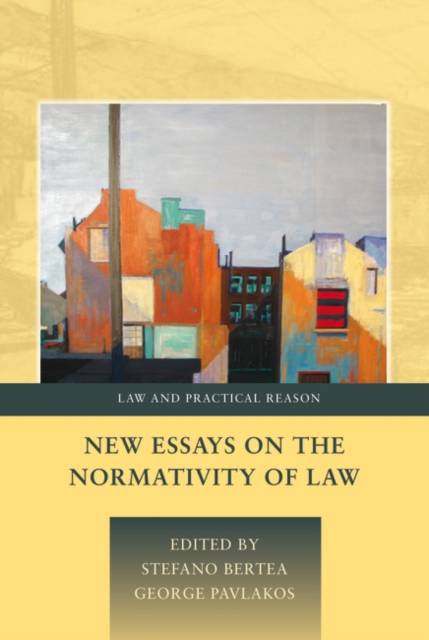
Je cadeautjes zeker op tijd in huis hebben voor de feestdagen? Kom langs in onze winkels en vind het perfecte geschenk!
- Afhalen na 1 uur in een winkel met voorraad
- Gratis thuislevering in België vanaf € 30
- Ruim aanbod met 7 miljoen producten
Je cadeautjes zeker op tijd in huis hebben voor de feestdagen? Kom langs in onze winkels en vind het perfecte geschenk!
- Afhalen na 1 uur in een winkel met voorraad
- Gratis thuislevering in België vanaf € 30
- Ruim aanbod met 7 miljoen producten
Zoeken
New Essays on the Normativity of Law
€ 228,95
+ 457 punten
Omschrijving
An important part of the legal domain has to do with rule-governed conduct, and is expressed by the use of notions such as norm, obligation, duty and right. These require us to acknowledge the normative dimension of law. Normativity is, accordingly, to be regarded as a central feature of law lying at the heart of any comprehensive legal-theoretical project. The essays collected in this book are meant to further our understanding of the normativity of law. More specifically, the book stages a thorough discussion of legal normativity as approached from three strands of legal thought that are particularly influential and which play a key role in shaping debates on the normative dimension of law: the theory of planning agency, legal conventionalism and the constitutivist approach. While the essays presented here do not aspire to give an exhaustive picture of these debates - an aspiration that would be, by its very nature, unrealistic - they do provide the reader with some authoritative statements of some widely discussed families of views of legal normativity. In pursuing this objective, these essays also encourage a dialogue between different traditions of study of legal normativity, stimulating those who would not otherwise look outside their tradition of thought to engage with new ideas and, ultimately, to arrive at a more comprehensive account of the normativity of law.
Specificaties
Betrokkenen
- Uitgeverij:
Inhoud
- Aantal bladzijden:
- 336
- Taal:
- Engels
- Reeks:
- Reeksnummer:
- nr. 3
Eigenschappen
- Productcode (EAN):
- 9781849462389
- Verschijningsdatum:
- 10/08/2011
- Uitvoering:
- Hardcover
- Formaat:
- Genaaid
- Afmetingen:
- 160 mm x 234 mm
- Gewicht:
- 657 g

Alleen bij Standaard Boekhandel
+ 457 punten op je klantenkaart van Standaard Boekhandel
Beoordelingen
We publiceren alleen reviews die voldoen aan de voorwaarden voor reviews. Bekijk onze voorwaarden voor reviews.








